Search Images
Browse Content (p. 1374)
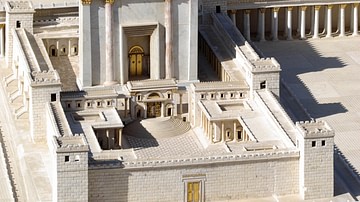
Image
Model of Herod's Renovation of the Temple of Jerusalem
A model of the lavish renovation of the Temple of Jerusalem carried out by Herod the Great in the second half of the 1st century BCE. (Israel Museum, Jerusalem)
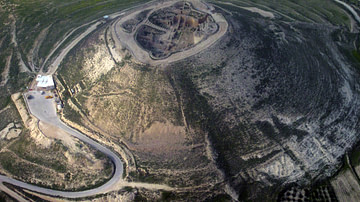
Image
Herodium
The Herodium, fortress and mausoleum of Herod the Great (reign c. 75 – 4 BCE). The fortress was built on the Jebel Fureidis mountain, 11 km south of Jerusalem, and completed c. 15 BCE. It included a palace structure within its walls and a...
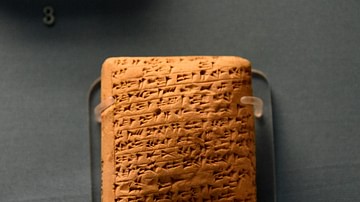
Image
Amarna Letter from Labayu
This clay tablet is part of the Amarna letters. This letter was sent from Labayu, ruler of Shechem to the Egyptian pharaoh Amenhotep III or Akhenaten. Labayu denies accusation of treachery and failure to comply with the pharaoh's orders...
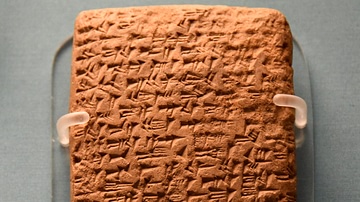
Image
Amarna Letter from Yapahu
This clay tablet is part of the Amarna letters. This letter was sent from Yapahu, (King of Gezer) to the Egyptian pharaoh Amenhotep III or Akhenaten. Yapahu begs the pharaoh for help in defending his city against rids by the Hapiru (Biblical...
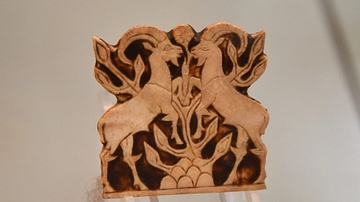
Image
Inlaid Shell Goats from Ur
This is part of shell inlay depicting two standing goats, rearing up a tree. This piece possibly was part of a fitting box. Black bitumen paste was used to fill in the background. Excavated by Sir Henry Layard for the Department of Antiquities...
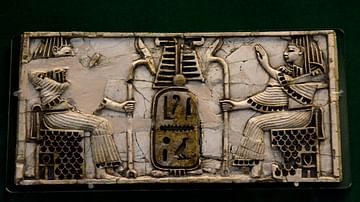
Image
Nimrud Ivory Plaque of Two Seated Figures
Two figures sit facing each-other either side of a cartouche surmounted by two feathers. The inscription consisting of Egyptian hieroglyphs, cannot be read, the signs have been treated in a purely decorative manner by the Phoenician craftsmen...
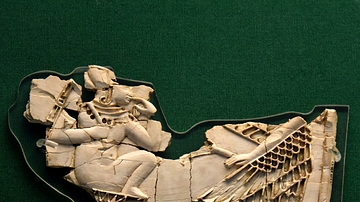
Image
Nimrud Ivory Plaque of the Birth of Horus
On the left is the naked infant Horus sitting on a lotus flower with his finger in his mouth. Facing him is a winged goddess, possibly Isis, who extends a lotus flower towards him. This fine piece was originally inlaid with colored glass...
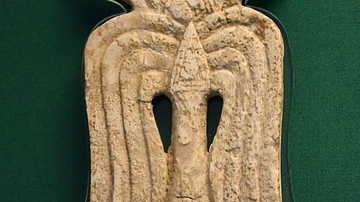
Image
Nimrud Ivory Plaque of a Stylized Palm Tree
This ivory plaque shows a carving of a stylized palm tree. There are tenons at the top and bottom of the plaque. The overall depiction is very similar to a fragment found in Samaria (also housed in the Museum). Excavated by Sir Max Mallowan...
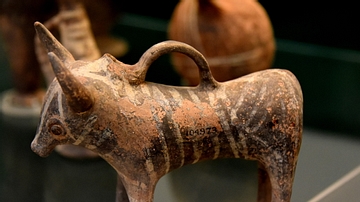
Image
Imported Cypriot Pottery Bull to the Levant
During the Late Bronze Age, the trade contacts established with Cyprus in the preceding period were intensified. This type of bull was very popular in the Levant, either as ornaments or perhaps as feeding bottles. Base ring ware. LBI-II...
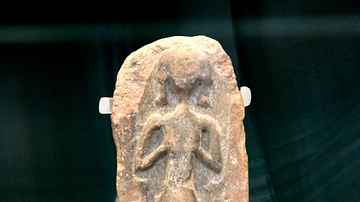
Image
Goddess Astarte Plaque
Terracotta plaque depicting the Canaanite goddess Astarte. The Late Bronze Age at Lachish. (The British Museum, London).